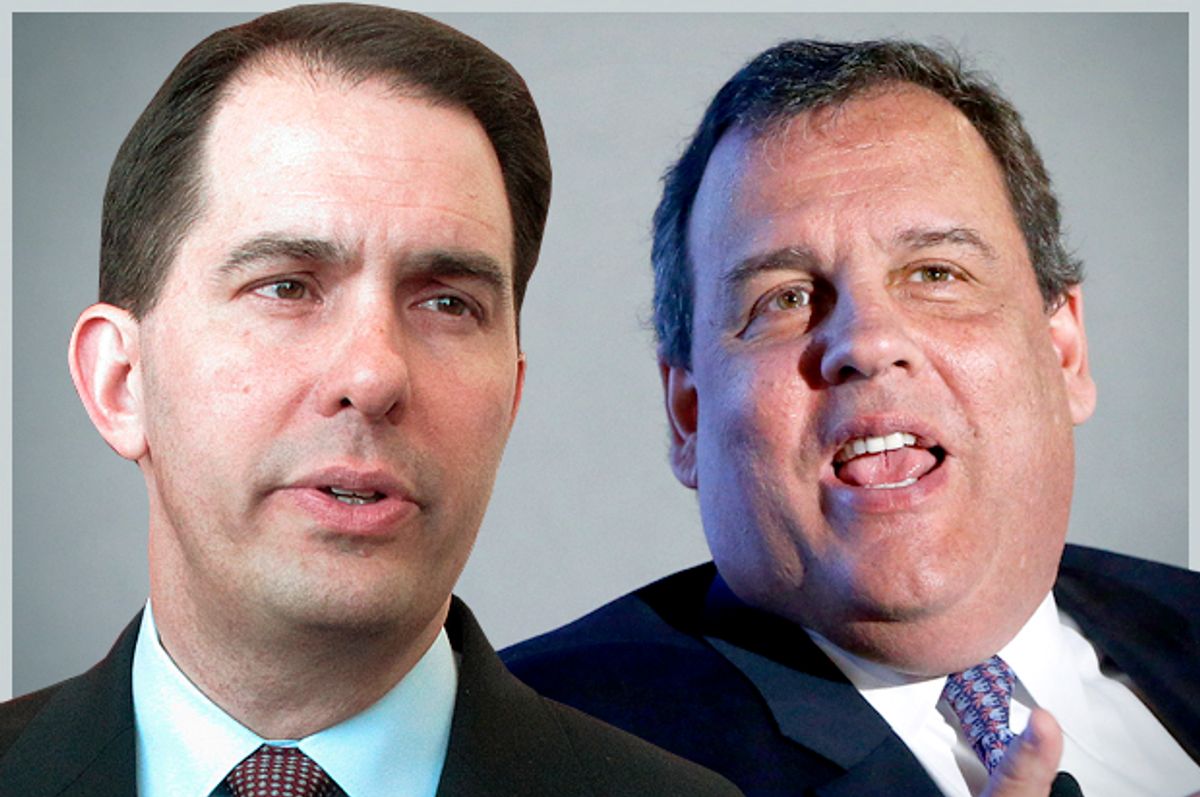It’s fashionable right now to talk about the premature end of Barack Obama’s presidency. He’s fast approaching the second half of his second term, which is historically the beginning of lame-duck season. His poll numbers aren’t what anyone would call ideal, and Republicans (in concert with some excitable members of the press) are rushing to proclaim the Obama presidency dead. “I saw a commentator today say that these polls, what they reflect, is that the Obama presidency is over,” Sen. Marco Rubio said, referring to NBC’s Chuck Todd. “And I agree with that. I think it is, in general.” Speaker John Boehner told reporters at his weekly press briefing yesterday: “You look at this presidency and you can’t help but get the sense that the wheels are coming off.”
Fun! The administration has actually had some substantial achievements over the last year or so and there are still areas in which they can accomplish even more, but once a good narrative gets going it’s hard to slow it down. The funny thing is that as Republicans team up with pundits to chisel out Obama’s epitaph, the Republican Party itself is falling to pieces right before our eyes.
Yesterday’s news that Scott Walker and Chris Christie sinking deeper into their respective scandals is as good a sign as any of the GOP’s political disintegration. After Obama crushed Mitt Romney in 2012, Republicans began casting about for their 2016 redeemer, and Christie and Walker were high on the list. They won conservative hearts with their antagonism toward unions, but they had also found a way to win in reliably Democratic states. If the GOP hoped to take on candidate-in-waiting Hillary Clinton, they’d need someone who could peel away some Democratic voters. Walker had talked about the need to nominate an “outsider” like himself in 2016.
Now Christie and Walker are implicated in criminal investigations. Prosecutors in Wisconsin placed Walker at the center of a “criminal scheme” to coordinate campaign spending with outside groups. In New Jersey, the investigation stemming from the George Washington Bridge scandal is reportedly closing in on Christie himself. For both men, once considered potential saviors of the GOP, the political future looks considerably dimmer.
Losing two top-tier presidential candidates (and potentially two governorships) would be bad enough, but the party also has to deal with the Tea Party/establishment fight that flared anew with Eric Cantor’s downfall earlier this month. The House leadership elections yesterday were quick and uneventful: Majority Whip Rep. Kevin McCarthy replaced Cantor as majority leader, and Rep. Steve Scalise replaced McCarthy as whip. Hardcore conservatives felt that Cantor’s defeat at the hands of a Tea Partyer would send a message to the leadership that RINOs (it’s still amazing they consider Eric Cantor a RINO) would not be tolerated at any level of government. The leadership heard that message, ignored it and installed McCarthy, whom the hard right considers even more of a squish than Cantor.
So now you have two camps that are ostensibly working toward the same goal – Republican control of the legislature – but are coming to resent and despise each other more and more. Sure, the GOP is well-positioned to make gains in the November midterms, but the big prize – control of the Senate – is no sure thing. If Republicans do take the Senate, it will be because conservatives turned out to send Republicans to Congress, and that, Slate’s John Dickerson observes, will exacerbate tensions even further.
McCarthy’s ascension suggests a coming challenge if Republicans take control of the Senate and bring both chambers of Congress under one banner. If that happens, it will be in large measure due to the power of grass-roots conservatives, and yet at the same time it will put the party in a position where compromise and the forces of pragmatism will be stronger than ever. That’s likely to cause greater clashes in the running debate between those who promote tactics necessary to govern and those who see those tactics as signs of ideological weakness.
And even if they do win big, they’re looking at a bleak landscape beyond. The Republicans have the upper hand because of Obama’s unpopularity and structural factors; their best chances to pick up Senate seats are in traditionally red states that elected (or reelected) Democrats as part of the 2008 Obama surge. Their more ambitious efforts to “expand the map” beyond their areas of natural strength are falling flat. Looking forward to 2016, the map turns against them, and they won't have the advantage of the Democratic base's midterm apathy.
That’s why it’s kind of funny to see Republicans so eager to declare the Obama presidency over. Right now, Barack Obama is the best thing they have going for them. Their governors are mired in criminal investigations, their leaders are being thrown out of office, and they’re at each other’s throats as they face down political oblivion. The only thing holding them together is hatred of the man in the Oval Office.

Shares